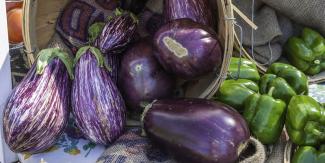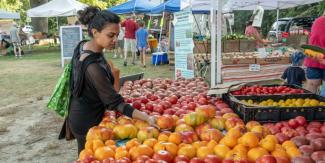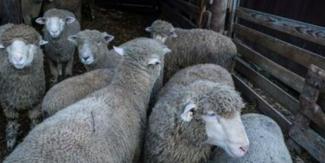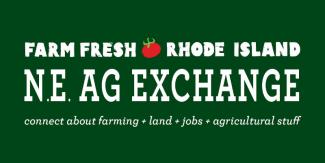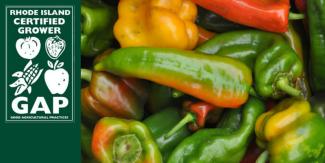Rhode Island Agriculture
Consisting of six primary program areas, the Agriculture section of RIDEM's Division of Agriculture and Forest Environment works to sustain, promote and enhance Rhode Island's agricultural viability today and for generations to come.
DEM’s Permit Application Portal is your one-stop shop for doing business with us.
The Department of Environmental Management (DEM) has launched a new online system for applications and forms administered by the Division of Agriculture and Forest Environment, including agricultural product registrations, commercial pesticide applicators, animal health permits and licenses, and forestry applications.
Program and Partner News & Highlights
Farm Ranch Stress Assistance Network RI (FRSAN RI)
Help Is On the Way! DEM Division of Agriculture and the Center for Mediation and Collaboration are partnering to launch a mental health and wellness program for farmers, commercial fishers, and workers in forestry-related industries. Learn More
Wholesale Readiness for Institutions Food Buyers (RI Food Policy Council)
Rhode Island institutions — including our 44 school districts, 11 hospitals, and 11 colleges and universities — provide an important market for Rhode Island grown, harvested, and manufactured food. In addition to supporting local farm, seafood, and prepared food businesses, institutional food purchases also help increase access to fresh, healthy, local food for all Rhode Islanders. Find resources and inspiration for RI institutional food buyers and sellers
Grower Resource: Free legal service for growers
The Legal Food Hub of the Conservation Law Foundation connects income–eligible farmers, food businesses, and the organizations that support them to FREE legal services for a wide range of legal issues.
Farm to Institution New England report and statistics
View the FINE Metrics Dashboard
RIDOT Oversize/Overweight Permits
Agricultural producers who are moving equipment over the road may be required to first get a permit through the RI Department of Transportation. Please find more information on permits and whether a permit is required by going to this site. If you have looked at the information on this site and are unclear whether a permit is required, please contact Samuel Hawkes at Samuel.Hawkes@dot.ri.gov or (401) 563-4582 with any questions. Visit the RIDOT permitting website at https://www.ri.gov/DOT/osow/
Quick Links & Trending Topics
- DAFE Online Application Portal
- Produce Safety Program
- FSMA - On-Farm Readiness Review
- RI Water Testing Program
- Farmland Preservation
- Agriculture Grant Opportunities
- Nursery Licensing, Inspection & Certification
- Organic Certification
- Good Agricultural Practices (GAP) Certification
- Apiary Certification
- Pesticides Program
- Pest Alerts (Spotted Lanternfly)
- Cooperative Agricultural Pest Survey (CAPS)
- Animal Health Program
- Animal Health - Livestock
- Animal Health - Avian Influenza (Bird Flu)
- Agriculture Census Data
- Senior Farmers Market Nutrition Program
Unsolicited Seeds (USDA)
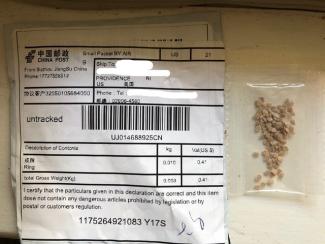
Do Not Open or Plant Unsolicited Seeds. Do Not Throw Unsolicited Seeds In The Trash.
These seeds are often part of a “brushing scam,” where a seller sends unsolicited items and then posts false customer reviews to boost sales. When unlabeled seeds enter the country without evidence of being inspected and certified, there is an increased risk that they may produce invasive or noxious weeds or harbor plant pests that could threaten agriculture or the natural environment.
- Do not plant the seed and do not throw the seed away
- Keep the seed in its original packaging
- Keep all other original materials that came with the seed, such as labels and envelopes
- Do not open the package if it is sealed; if it has been opened place in a Ziploc bag
- Wash hands after handling the package or seeds if the package is opened
When you report unsolicited seeds, you help us protect U.S. agriculture and natural resources. USDA urges anyone who receives unsolicited seeds to immediately contact their State Plant Health Director.

